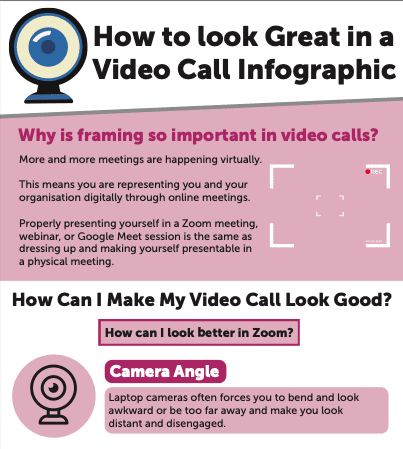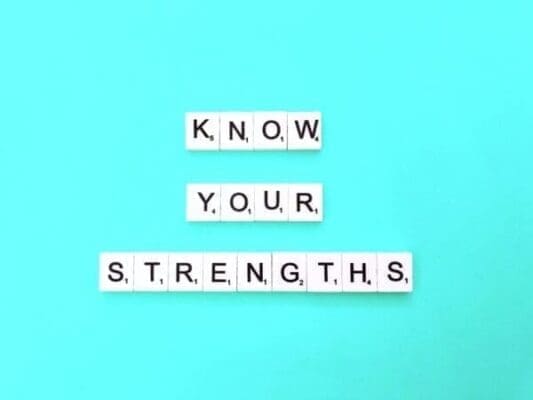How to Prepare for a Remote Job Interview?
You have interviews coming on the way and the possibility of having a remote job that offers you everything you dreamed of. But, what are the best ways to sell yourself for a job? How to make hiring managers convinced that you’re the best candidate? With the right interview preparation, you increase your chances of acing all your interviews.
The pandemic changed the rules of the game. Probably a few years ago, you learned all the tricks about dressing correctly for interviews, body language, or even how to properly shake hands.
Nowadays, most of the interviews take place digitally. Everything changed, so it’s necessary to keep updated with the latest interview preparation tricks.
Type of Remote Interviews
How you perform in a remote interview says a lot about how you work remotely. Hiring managers don’t only care about the answers you give, but they also evaluate other aspects. For example, they consider the way you communicate and how you deal with technology and new tools.
This is why interview prep will help you familiarise yourself with tools you probably never used before. So, when you schedule job interviews, ensure to know where the interview is taking place.
In the case of remote interviews, you’ll often face different interview formats during the application process. The most common interview types are:
1. Video Call
Video calls are the most common type of remote interview. These are the closest to the in-person interview experience. Hiring managers evaluate the way you express, how you answer, your facial language, and overall, how you connect with them.
Often companies use video call software such as Zoom, Skype, Google Teams. But, if they’re looking to save a little money it’s not unheard of for them to use a webinar platform.
2. Phone
In some cases, instead of video, interviews take place via the phone. This means you don’t need any camera, just to ensure that your phone’s mic is clear. Phone interviews are often part of the interview round to vet candidates.

Sticky Learning ® is 7 times more effective than 1-day training courses. Plus, you will get a Chain of Evidence proving your Return on Investment. Discover soft skills training that changes behaviours long term.

3. On-Demand Video Interview
For big corporations that receive thousands of applications, it’s common that instead of interviewing one by one, they ask candidates to record themselves answering a guide of questions. These videos will later be analyzed async by hiring managers and recruiters.
Interview Preparation for a Zoom Interview
Most companies embraced video interviews during the pandemic. According to a joint study by Standout CV and JD Library, video interviews increased by 67% from 2020 to 2021. And over 60% of employers say they will continue conducting video interviews after the pandemic.
Meets, Skype, RingCentral, Microsoft Teams are a few of the many options available for remote interviews. However, Zoom is still the most popular application for interviews and remote meetings. The software registers over 3.3 trillion annual meeting minutes!
But, are there any tricks to know beforehand when preparing for an interview? Let´s go over the Zoom interview preparation checklist.
Remote Interview Preparation Checklist:
- Get familiar with Zoom – Learn how to use the software, turn on/off the camera, mute the microphone, and perform basic functions like screen sharing.
- Make sure you have a good pair of headphones and a clear camera.
- Test your internet connection and ensure it is stable (And have a reliable plan B, in case it fails).
- Find a quiet place where you can talk easily.
- Make sure to find a spot with a neutral background to avoid distractions. If you don´t have one, add a virtual background in Zoom.
- Minutes before the meeting, turn off notifications and silence your phone.

6 Interview Preparation Tips to Ace Your Remote Interview
Has it ever happened to you that you thought an interview went excellent, but the company never contacted you after it? It’s one of the biggest disappointments, especially when you don’t know what exactly went wrong.
Sometimes the problem isn’t in your lack of skills or experience but in how you perform overall during the interview. Here are 7 effective interview preparation tips that will help you land a remote job:
#1. Make Sure You Have All the Tools to Work Remotely
One of the first things recruiters and hiring managers will evaluate is that you have the capacity to work remotely.
Forget about standing desks, ergonomic chairs, laptop stands, or second monitors. These are great to work remotely and will help you increase your productivity significantly. However, when you just started working from home, it’s expected that you don’t have all these, mainly because they require a significant investment.
Start with the basics:
- A laptop with a camera.
- A good pair of headphones, preferably noise cancelling – If you don’t have ones, ask them to borrow, at least until you can buy your own.
- Also, if you don´t have the interview on the phone. This is a huge red flag for recruiters as they will assume you don’t have a good laptop to work with.

And in terms of equipment and technology, 10 minutes before the interview starts, make sure all the tools work properly. If your interview is via zoom, ensure that the camera and microphone are working and your wifi connection is stable. A good way to test it is by calling a friend via Zoom to ensure they can hear you and see you clearly.
#2. Schedule the Interview Thoughtfully
You’re probably wondering, what does scheduling the meeting thoughtfully mean?
There are different factors to keep in mind when scheduling meetings:
- Time zones: If the company you apply to is in a completely different time zone, make sure that the interview is in a schedule that makes sense. If you have it at midnight, you’ll likely be whispering instead of talking normally. WorldTimeBuddy is a great app to compare different time zones.
- Family or roommates: Whether you live with family or with friends, if there’s a time frame where nobody is home, that could be a great moment to have the interview.
- You will be more relaxed that nobody will make noise. Noise-free environment: While unexpected things happen, interview preparation is about making everything work the best way. If you know that the garbage truck (that usually makes a lot of noise) passes during certain hours, or if any other external event occurs, schedule the meeting at a different time.
#3. Read the Job Description and Study the Company
Interview preparation is not only about the tools and equipment, but it’s also about studying the role and the company you apply for. Your performance depends on how well you take the time to prepare.
Days before the interview, read the job description carefully again. Know precisely what your role and responsibilities will be, and most importantly, know why you’re the right candidate to perform that role. How will your skills and experience match that role? Make the interviewers understand why they should hire you instead of the other candidates.

Additionally, study the company. Try to understand what sector it operates in, the challenges it faces, the competitors, and their culture.
Most people think that studying a company just knows what it does and its mission and vision. But what companies and hiring managers want to see if someone is truly interested in becoming part of the company. They want people committed to working towards their goals and who show genuine interest.
#4. Ask Questions
Remember, a job interview is a conversation, not an interrogatory. It shouldn’t be only the interviewer asking all the questions and making conversation. The idea of interviews is also for you to establish a connection, especially if you are interviewing you is your potential boss.
Instead of picturing interviews as a one-way conversation, try to get the idea that you’re talking with a friend. A hiring manager is not only looking for people with great skills; they also want team members that they can easily get along with.
Also, don´t forget to ask questions. When preparing for the interview, write down the questions that pop into your mind. It can be in terms of the schedule, the tools they use to work, the role and responsibilities, etc.

#5. Know How to Sell Yourself During the Interview
Don’t pretend to be the perfect candidate. Selling yourself is not about showing how perfect and flawless you are. It’s more about knowing why you should work for the company and why your job makes you passionate.
If you have experience working on similar jobs, prepare all the references and the work you did for previous employers. Instead of just listing all your previous jobs, be detailed in those you had a major impact on. Let interviewers know how you helped a company go from Y to Z.
If you’re applying for a more junior position and don’t have much experience to showcase, be honest. Managers hiring for entry-level positions are aware of the lack of experience. They want loyal and passionate employees who are willing to learn.
#6. Make a Good Impression
According to LegalJobs, you have only 7 seconds to make a good impression. But, how to achieve this remotely? Here are some tips:
- Be on time: Believe it or not, people show up late to virtual interviews, which is a huge red flag for recruiters.
- Smile and maintain eye contact: While for interviewers is more challenging to evaluate body language in a remote setting, this doesn’t mean they don’t do it. They will still see how you perform in a video call and how relaxed you seem or not.
- Be a good communicator: When interviewers ask you questions, take time to listen and understand what they are asking. If you’re unsure of the question, ask for clarification.
What are the 10 Most Common Interview Questions and Answers?

Have you ever had interviews where you had no idea what to answer? You got nervous and stumbled with words, making you feel like a failure. Don’t worry. It commonly happens, and that’s why interview preparation is valuable.
The point is not memorising all the answers, but these questions can guide you on what to expect and reduce your nervousness.
1. Could You Tell Me About Yourself?
This is one of the most common questions interviewers ask. The point is not to give a long answer with all the details about your life. Prioritise what is valuable for them to know and what makes you unique.
For example, you can share a bit about your background and how you became interested in your career. Then you can go more in-depth about your profession and your experience working for other companies, mentioning your current job. And, to finalize, you can talk about the future and why you’re interested in the role.
Example: “Growing up, I lived in many different countries. I loved learning about each culture, its traditions, and what made them unique. This led me to pursue a career in international relations. During college, I worked for many intergovernmental organisations such as the United Nations, and I joined the Young Professionals Programme. This helped me gain organizational and analytical skills. Once I graduated, I worked for The World Bank, which is where I’ve been for the last three years. In this last job, I’ve learned many valuable skills as I started leading a team and reinforcing teamwork that leads us to achieve many goals. However, I’m interested in taking a new role in this company, as I believe that fighting against anti-immigration policies is necessary.”
2. What is Your Strength?

One of the most common questions that many interviewees have no idea how to answer. With these questions, hiring managers want to test your confidence and what skills make you valuable.
Don’t give a general answer like “I’m an avid learner.” Be specific and provide examples.
Example: “As a project manager for over 5 years, I´ve had to deal with projects given on short notice. One of my greatest strengths is having the ability to handle pressure under tight deadlines. This has helped me successfully deliver projects and deal with difficult clients.”
3. What is Your Biggest Weakness?
If you want to know the best weakness interview answer, let’s start by saying that “I’m a perfectionist” or “I’m stubborn” is not it.
Be honest and give original answers. It’s not about providing a list of your thousands of weaknesses (because we all have many), but it’s about showing the interviewers that you’re open to criticism.
Try to stay away from personal qualities, and focus more on the professional aspects. Showing how you’ve tried to improve these weaknesses is also a good way to soften the answer.
Example: “I think that my biggest weakness is being too direct. It has happened to me that when things are not done correctly, I’ve said what comes to my mind without processing it correctly. Now, I’ve worked on always taking 10 seconds to breathe and think of what I want to say, and it has helped me put everything into perspective.”
4. Why Should We Hire You?
Probably in your head, you have answers like “Because I need a job,” “I need to pay rent,” “I want more experience,” “I hate my current job,” which, while they are all valid, won’t help you during the interview.
Employers want to know why you are a good investment. Why is hiring you worth it? What can you do that others don’t? Here’s when you make your sales pitch!
Example: “I have experience with sales marketing, and overall in my last roles, I’ve focused on understanding what audiences want. With my background, I’ll be able to provide you with an in-depth analysis of what your customers are looking for.”
5. When Was the Last Time a Co-Worker or Customer Got Angry With You? How Did You Solve it?

Conflict and misunderstandings happen. Nobody is perfect! And interviewers know that. They are not expecting an “I never got into any conflict”; they want to know how you solve problems.
If you start blaming and talking negatively about others, that’s a red flag for hiring managers as they’ll see you cant assume responsibilities.
Example: “In my current job, I got into a disagreement with one of my coworkers. We had to present a report, and we had completely different ideas in the best ways to present it, mostly because it was an important client and we had a lot of pressure. When we started discussing, I decided that the healthiest way to solve the problem was to take a break. In 20 minutes; I went for a coffee, took time to rethink the situation, and when we got back, we were both more relaxed. Each of us explained our ideas, and eventually, we got into an agreement. Our client loved our presentation, so everything turned out great.”
6. Why Do You Want to Leave Your Current Job?
The worst answer you can possibly give is to talk badly about your boss or coworkers. Don’t make this about the company or the others; make this about you.
Focus on all the great advantages changing jobs will bring to you what you will learn, grow, and achieve.
Example: “While I care about my team, and I’m grateful for the job I have, I’m ready to take on more challenges. I’ve been in the role for 3 years, learning valuable skills. But, I also want to continue growing and developing my career. I know that in this company, I’ll be able to learn a lot.”
7. What are Your Salary Expectations?
This is also one of the most common interview questions. Mostly because employers have a budget for every position, they want to make sure that the budget is aligned with your salary expectations before moving forward with the process.
Research what the salary is for that position. On websites such as Glassdoor, you can get that information, also by asking people in the field. Your salary should always be aligned with your skills and experience.
Example: “Based on the industry rates and my experience working in the field, my salary expectations are around $____.”
8. From Your Resume it Seems You Were Unemployed for a Year. Why?
Some people choose to take a gap year for many reasons. Others just can’t simply find a job, or other situations happen. For example, many were unemployed for a couple of months because of the pandemic.
While this might seem negative, it’s also normal. Let the interviewer know that you were unemployed was not about procrastinating. The answer will obviously depend on your story,
Example: “During the pandemic, I lost my job because the company I worked for went bankrupt. Although it was difficult at first, I realised I wanted to take a few months to study and learn more about digital marketing. As I had savings, I decided to take an intensive course for 6 months and focus exclusively on studying. ”
9. What is Something Positive Your Boss Would Say About You?

Tricky question. This one is a bit similar to the biggest strength one, but the difference is that interviewers want to see the type of relationship you built with your boss. They want to know the impact you had on your previous company.
Example: “My boss has mentioned that he values my attention to detail and how I always find ways to improve our current processes.”
10. How do You Keep Yourself Organised?
Being independent and knowing how to manage your time are two of the most important skills managers look for when it comes to remote jobs.
Here’s where you can talk about the processes or tools you use to stay organized. If you have a rigid schedule, or if you like working in sprints.
Example: “In most of my jobs, I had to juggle multiple projects simultaneously. I learned, with time, what worked best for me. I always keep an agenda, where I arrange the tasks from most important to least important. As I’m a morning person, I prefer working on the hard tasks first, and in the afternoon, I take care of the little things. Additionally, I use the Pomodoro technique in those tasks that require a lot of my time, as it helps me stay focused.”
Ready to Ace Your Remote Interview?
Interview preparation will give you the necessary foundation for you to give your best. While there’s always the pressure of wanting to get that job, with these tips and tricks, you have everything you need.
Key things to remember in interview preparation:
- Have the necessary equipment and software.
- Research the company, and make sure you understand the role.
- Be confident that you’re the right person for the job.
- Practice with a friend to get rid of the nervousness!
Good luck!




